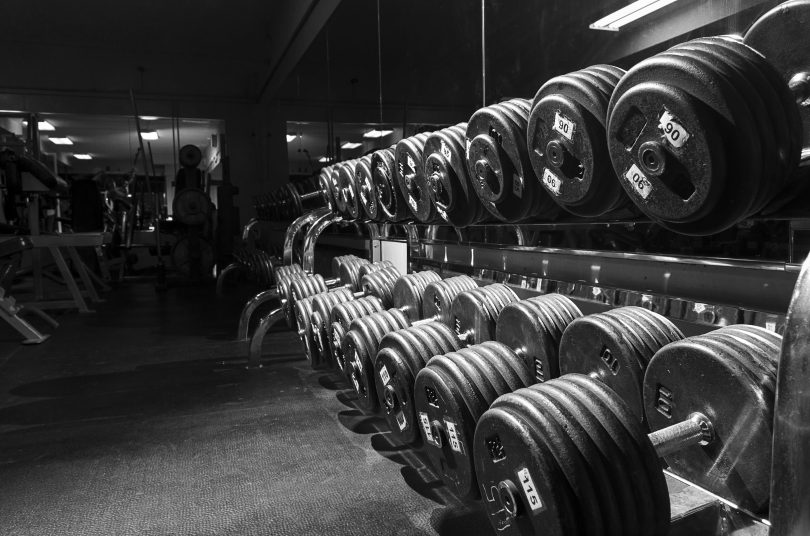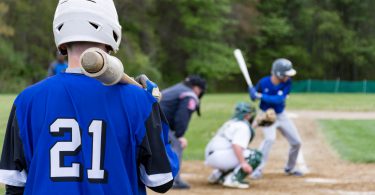Want to get this content in audio format? Just click play below!
In baseball, skill is valued above all else. It’s one of the great things about the national pastime—the best players come in all shapes and sizes. Just think back a few years ago to the AL MVP race between Aaron Judge and Jose Altuve. You couldn’t pick two more distinct body types. While the Judge and Altuve comparison is easy to draw upon and helps to show that size doesn’t have to be a limiting factor, it would be foolish not to point out that Altuve is an extraordinary talent. While skill is the driving force for playing opportunities at the college level, size and “physicality” are heavily recruited attributes and do matter. In this article, we describe the difference between “size” and “physicality”, and explain why college coaches value these two attributes, and why you need to focus on becoming the most physical version of yourself.
“Size” versus “physicality”
In baseball scouting terms, size refers to a player’s physical characteristics or things that can be measured like height, build, wingspan, etc. Size is objective and easy to compare. A scout or coach may say something like, “He’s a good size kid,” meaning he has a big, projectable frame and valuable physical attributes. To stick with our original comparison, Judge is taller and has a much bigger frame than Altuve. Judge has size, Altuve doesn’t. That’s a size comparison. Physicality is more subjective in nature and has many definitions around the baseball field. Physicality can refer to size. As in, “He is a physical player.” Physicality is often also be used to describe tools. For example, “That’s a physical swing.” To expand on this idea, it could be said that Altuve has a “physical” swing (referring to bat speed and power) or that he is a “physical player for his size” (Meaning his tools and strength play bigger than you’d expect from a player his size). His size, however, would never be described as “physical”.
Why coaches recruit size and physicality
Generally speaking, college coaches really value players with size. Big, physical players have long been a focus for recruiters and scouts. It boils down to athleticism, power, durability, upside, and physics. Players with size have more leverage and power. Size is also a critical component of projectability, which we describe in detail here. Bigger players are often believed to have a higher ceiling or upside than smaller players and are considered more durable. As one D1 head coach once told us, “Recruiting big guys is more likely to get you big results.”
Of course, we are not talking in absolutes. There are clearly smaller players who are dominating baseball at the highest level and showing themselves to be all these things. The fixation on size is about sticking with what has been tried and tested, it’s about college coaches wanting to play the percentages and recruit the “safe bet”. If you are a recruit with size and/or physicality, you are going to get a longer look and more attention from college coaches, period. There’s no debating this. The path to college baseball is easier for bigger and more physical players. Physicality, whether referring to size or as an adjective to describe tools is a coveted attribute and players should put a lot of attention on the elements of physicality that they can control.
Make the most of your size by improving your physicality
As we’ve mentioned before, there is nothing you can do to change the size of your frame. You are who you are, and you can thank your parents for that. However, you can work to become the most physical version of yourself and bulk up your frame. That is something you have a lot of control over and something that college coaches are paying close attention to. If you want to play college baseball, being strong and in shape is step 1. You might be thinking, “Size and strength don’t matter if you can’t hit or throw,” and you have a valid point. But recruiting is about attention and opportunity. Strong, physical players are going to get a longer look and more opportunity to show that they have what it takes to play at the next level. For these reasons, if you want to play college baseball, a great place to start is in the weight room. Like Altuve, Dustin Pedroia, Mookie Betts, and all the other “undersized” superstars, you should strive to maximize the physical characteristics and size that you were born with by developing tools that can be described as physical. Regardless of your size, leave coaches who watch you play thinking, “For his size, he is a physical player,” or “His skills play bigger than his size.”
While playing at the next level ultimately boils down to the skills that you bring to the table, you’ll get a lot more recruiting attention by being the most physical version of yourself. You may not be able to change certain physical attributes, but figure out how to make the most of what you were born with both on the field and in the weight room. Good things happen for recruits who use their size as motivation rather than an excuse.







